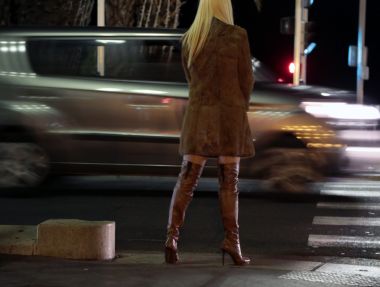Scotland anti-trafficking law: Landmark law makes abolition of modern slavery possible

With the passage of the Human Trafficking and Exploitation (Scotland) Bill, in the space of just one year, all parts of the United Kingdom have passed into law dedicated anti-slavery legislation. Victims across the country now have a voice. Perpetrators face tougher penalties. And Christians have been at the forefront of tackling the issue of modern slavery in the 21st century.
200 years since William Wilberforce and his heroic efforts, the UK has again taken a stand against human trafficking. For this, we thank God.
When CARE began exploring the issue of human trafficking we discovered the appalling fact that there are more people in slavery today than at the time of Wilberforce, some 20,000,000. In the UK figures indicate that there are 2,500 trafficking victims, though in reality this is probably just the tip of the iceberg.
It is a hidden crime and 56 per cent of those trafficked, including children, are for sexual exploitation. What we also discovered is the need to bring home to people that human trafficking is not isolated to distant parts of the developing world, but is happening in local communities, right now, all across our country.
I well remember in 2011 living in a beautiful and affluent part of the South East of England when I came face to face with the reality of the world's third biggest trade, human trafficking. It became apparent that the apartment opposite ours was being used as a brothel. I can still picture the drawn, pale faces of two girls whose age and nationality I am not sure of. It reminded me that victims of modern slavery today may look just like you and me. But unlike us they have not enjoyed the freedom we have. Instead they have been press-ganged and coerced into a life of utter ruin and misery.
For me it has been a humbling experience to lead an organisation which began to raise the issue with policy makers. Indeed we were one of the first charities to start campaigning on this issue and since 2006 have been in the forefront of advocating for better support for victims and specialist support for children. A chance meeting in parliament in 2012 with Lord Morrow, a member of the Northern Ireland Assembly, led to a momentous three year struggle and finished in January with his Private Members Bill receiving Royal Assent.
The Human Trafficking and Exploitation (Criminal Justice and Support for Victims) Act (Northern Ireland) 2015 is the most comprehensive piece of anti-slavery legislation anywhere in the UK. It has been held up as a model for other nations to follow. It had an impact on the shape of legislation at Westminster and Holyrood. We were privileged to serve Lord Morrow as his principal adviser in Northern Ireland from the very beginning of his attempt to bring in tough legislation to tackle the demand for prostitution by making payment for sexual services illegal; tougher penalties for the traffickers and better education and care for the victims, especially children.
It was a long hard struggle, but the harnessing of policy drafting expertise and the prayers and well informed engagement of Christians with their MLAs resulted, amazingly, in the unanimous vote for a groundbreaking piece of legislation which became law in January this year.
Meanwhile Lord McColl in the Westminster Parliament had been faithfully raising the issue with politicians and the Home Secretary and the resulting Modern Slavery Act became law despite all the twists and turns. Again, we worked hard to ensure the legislation was more victim focused and that greater support was given to child victims especially. Thanks to the persistence of various parliamentarians and Peers, the final result, the Modern Slavery 2015 Act is far more victims focused than was originally the case. So in March of this year, England and Wales joined Northern Ireland in passing anti-slavery laws.
And so to Scotland and the historic vote there will help make it easier to prosecute offences especially those committed against children. It contains assistance for adult victims for their initial recovery and provides for child trafficking guardians to be given to children who have been or are deemed to be at risk of becoming victims of trafficking. Credit is due to Jenny Marra MSP especially who first raised the issue with the Scottish Government and who has been a tireless campaigner since then.
It is impossible to underestimate the significance of these new laws. A problem many thought had historically been dealt with is very much alive in our country. Only now there are robust, comprehensive laws to deal with the scourge of modern day slavery.
One year, three pieces of legislation – and the result? Groundbreaking new laws right across our nation meaning hope for the victims of this vile trade. Alongside many other charities and campaigners, CARE has been privileged to play our part. In God's grace we will continue to do all we can to make sure these laws make the difference they are intended to make.
Nola Leach is the chief executive of CARE.











